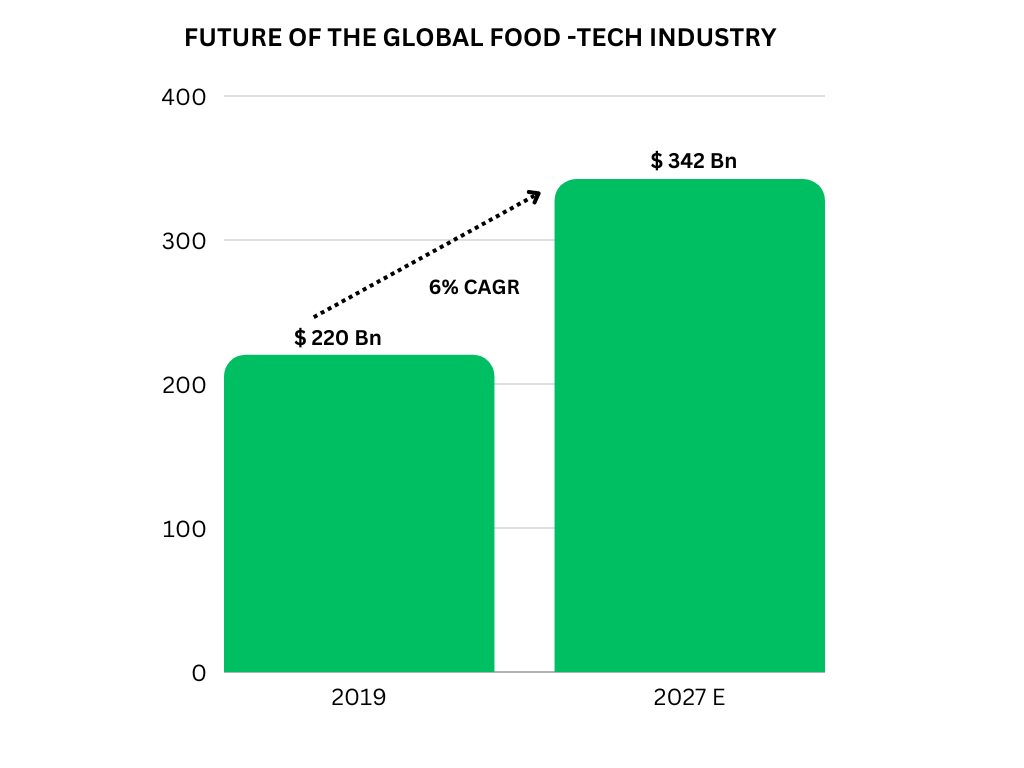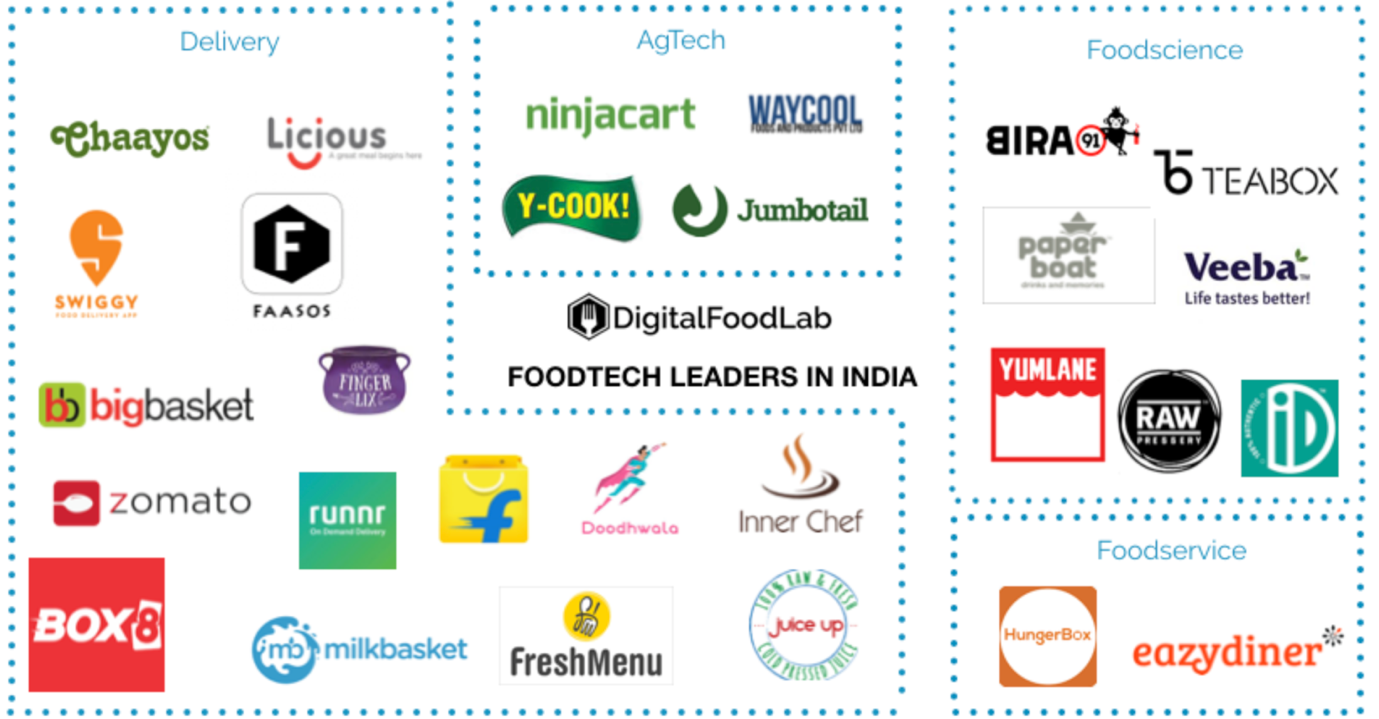In a world grappling with environmental challenges, the need for sustainable food solutions has become paramount. India, with its vast agricultural landscape and rich culinary heritage, is uniquely positioned to leverage food-tech innovations to address these challenges. Through the convergence of technology, agriculture, and sustainability, India can pave the way for a greener, more resilient food system.
India faces several pressing environmental challenges that directly impact its food system. Rapid population growth, climate change, soil degradation, water scarcity, and food waste pose significant threats to agricultural sustainability. These challenges demand innovative solutions that minimize resource consumption, reduce greenhouse gas emissions, preserve biodiversity, and ensure food security for future generations.
WHAT EXACTLY IS FOOD TECH ?
Food Tech refers to the application of technology in various aspects of the food industry, including farming, processing, packaging, and distribution. In India, food-tech has evolved significantly over the years, with advancements in precision agriculture, biotechnology, and sustainable food processing.
Food tech as a category encompasses various components and areas of innovation . These areas can be used effectively to ensure sustainability and address environmental issues :
- AGRI-TECH: Agri Tech focuses on technologies used in agriculture to enhance crop production, increase efficiency, and reduce environmental impact. This includes precision agriculture, automation, robotics, sensor technology, drones, and smart farming solutions.
- FOOD PROCESSING AND PACKAGING TECH: Sustainable food processing technologies minimize environmental impact through energy-efficient manufacturing, waste reduction, by-product utilization, and eco-friendly packaging alternatives.
- FOOD WASTE REDUCTION: Addressing challenges related to food loss throughout the supply chain is crucial for sustainability. Effective waste management strategies, such as improved storage facilities, efficient transportation, and utilization of organic waste for energy generation, can help minimize food waste and associated environmental consequences.
- DISTRIBUTION AND SUPPLY CHAIN LOGISTICS: Optimizing supply chain operations through technology is another way to tackle environmental challenges. Smart logistics solutions, including route optimization, real-time tracking, and warehouse management systems, can reduce carbon emissions and maximize efficiency throughout the food distribution process.


Source : Emergen Research
Some notable changes brought in by food tech for maintaining and ensuring sustainability are :
- Alternative Protein Sources: Food-tech is transforming the way we think about protein sources by offering sustainable alternatives to conventional meat. From plant-based proteins to cultured meat, these innovations reduce greenhouse gas emissions, land usage, and animal cruelty, while providing nutritious and delicious alternatives. India’s rich culinary heritage and diverse plant-based food options make it a fertile ground for the growth of alternative protein industries.
- Enhancing Crop Production through Biotechnology : Biotechnology plays a vital role in improving crop yields in India. Through genetic engineering, scientists have developed drought-resistant and disease-resistant crops that require fewer resources and have higher resistance to environmental stressors. These genetically modified crops have the potential to revolutionize the agricultural landscape, promoting sustainability and increasing food production.
- Food Delivery : Food delivery in India has experienced significant growth in recent years. With the rise of online platforms and mobile apps, ordering food has become more convenient than ever. The increased penetration of mobile phones and internet had helped the food delivery revolution in India. Popular food delivery services such as Swiggy, Zomato, and Uber Eats offer a wide range of cuisines and restaurants to choose from.


Source : Digital foods lab
Consumer Education and Sustainable Choices:
Creating a sustainable food system requires the active participation of consumers. Food-tech plays a crucial role in raising awareness and empowering consumers to make sustainable choices. Mobile applications, online platforms, and smart labels provide information on the environmental footprint of food products, enabling consumers to make informed decisions and support sustainable food production and distribution practices.
Collaboration and Policy Support :
To drive the adoption of sustainable food-tech solutions, collaboration between government, industry, and research institutions is crucial. Policymakers should incentivize sustainable agriculture practices, invest in research and development, and provide support for food-tech start-ups. Collaborative initiatives can create an enabling environment for innovation, foster knowledge sharing, and ensure the scalability of sustainable food solutions across the country.
Conclusion:
Sustainable food solutions are essential to mitigate environmental challenges and build a resilient food system in India. By harnessing the power of food-tech, the country can lead the way in transforming agricultural practices, reducing waste, and promoting sustainable choices. The convergence of technology, agriculture, and sustainability offers immense opportunities to create a future where food production is efficient, resources are conserved, and the environment is protected. With collaborative efforts and supportive policies, India can nourish its population while safeguarding the planet

